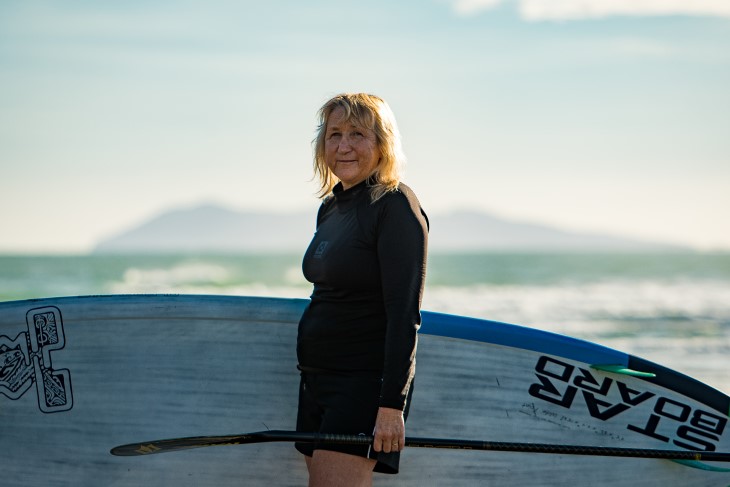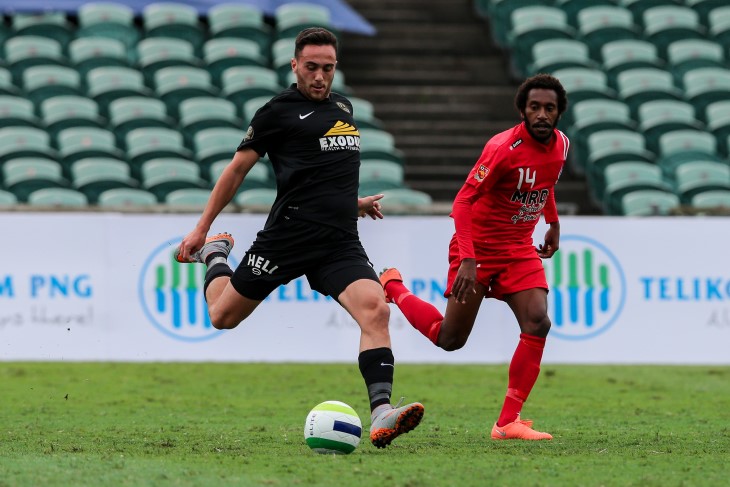Lenka's story: Getting back on her horse after concussion Te kōrero a Lenka: E eke ana anō i tōna hoiho i muri mai i te mate roro mātengatenga
After sustaining a head injury, a Kāpiti Coast local has had a two-year battle. She's sharing her story to help others avoid a similar experience.
Lenka Fields and her daughter Paris are at full canter on their horses on Ōtaki Beach. The sun is rising over the sea as Lenka pauses for a moment to take it all in.
“This is where I love to be,” says the 51-year-old, who began horse riding when she was eight.
“It’s stunning. The big open spaces. There is no one else around. It’s such a beautiful piece of coastline. There is nothing better than being able to share this experience with my daughter.”
Lenka and Paris share a close bond forged by their love of horses. Once a week they get out to their favourite part of the Kāpiti Coast.
“It’s a really special time,” says Lenka. “I know I’m super lucky to have that friendship with my daughter. We go everywhere together on our horses and talk about everything.”
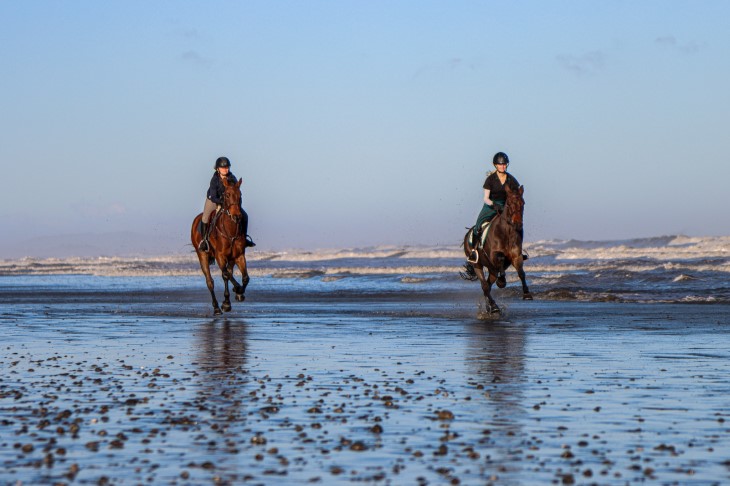
The English-born Kiwi is lucky in more ways than one.
Four years ago she suffered a concussion when training a horse. It took her almost two years to feel normal again.
ACC has played a key role in her rehabilitation, covering her hospital visit, assessments, physio appointments and Concussion Clinic sessions.
“I’m lucky to be able to ride again. After what I’ve experienced, I will never take it for granted.”
“Your mum is acting weird”
Lenka has suffered two concussions while horse riding where she needed to be hospitalised.
She has no memory of either of the accidents.
The first one happened when she was 21 years old. Lenka and a friend decided to go for an impromptu pony ride. They jumped on without their helmets and took off.
“It was just a really dumb moment,” she says. “We were riding little school ponies, so we presumed we’d be fine. I got bucked off and hit the back of my head. I still have no memory of that day.”
Almost 30 years later, she suffered another concussion that had a lasting impact on her life. She was retraining horses that had behavioural issues and things went awry.
“I was taking a horse that needed to be retrained to a paddock down the bottom of our farm. It must have knocked me over and dragged me along the ground because I had scrapes and bruises down my side and on my legs.”
“I got to the stables and I thought ‘I am fine’. One of our livery staff approached my daughter and said: “Your mum is acting weird you might want to have a chat with her.”
Lenka was walking around aimlessly and repeating herself. “I looked at them blankly. I was totally lost.”
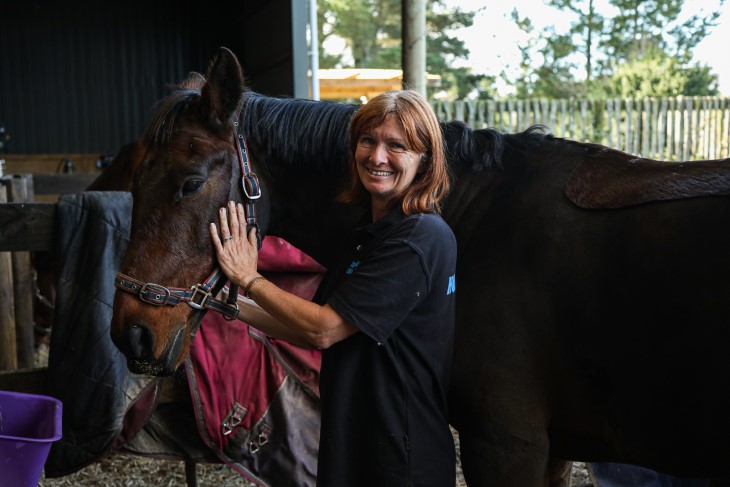
She was taken into Wellington Hospital straight away where she was admitted. She was assessed and had an MRI.
Lenka had some bruising down the right side of her face and pain in her right eye.
“I had some real problems with my right eye for a long time afterwards. My eye would go to the right and it would shudder when I tried to look to the right or the left.
“It wasn’t very attractive,” she laughs. “It knocked me back a fair bit.
“Suffering a concussion doesn’t just affect you. It’s the people around you. It’s your job. Your family. They have to all pitch in and it’s really worrying for them.”
Lenka works at Gorge River Equestrian. She no longer trains horses with behavioural issues.
The statistics on horse riding injuries
Lenka is not alone.
In 2021, ACC accepted 3,514 horse-related injury claims which came at a cost of $16.7 million to help people recover.
Almost 150 claims were for concussion. The cost of helping people recover from horse related concussion was $2.4 million, four percent of the number but 14 percent of the cost.
Over the past five years (2017 – 2021) ACC has accepted 1,062 horse related concussion claims at a cost of $11.5 million.
The age groups 10-14 (236) and 15-19 (242) had the most horse-related concussions over the past five years.
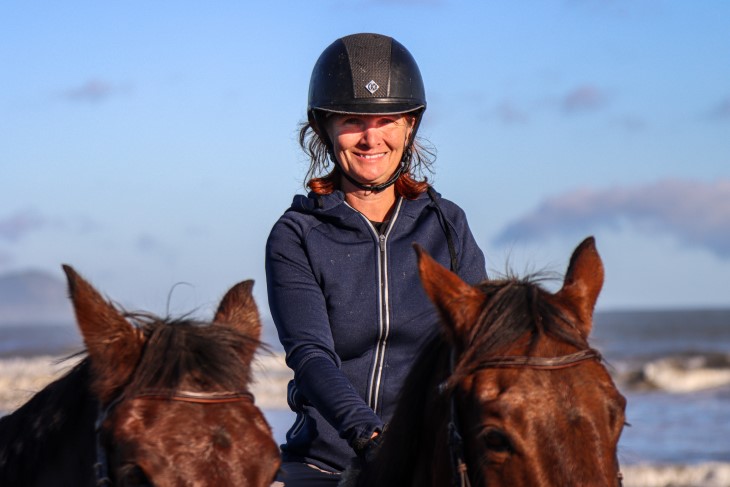
In 2021, females made up 94 percent of horse related concussions.
On 1 August 2017, a new rule was introduced into the Equestrian Sports NZ General Regulations. It saw all riders competing in ESNZ disciplines having to wear approved safety helmets.
A change to the helmet tagging policy and procedure has been confirmed from 1 August 2023. This is in line with best practice health and safety standards.
ESNZ and the New Zealand Pony Clubs Association (NZPCA) have signed a joint memorandum of understanding. The MOU will support the single tagging policy for New Zealand equestrian events and activities held by either of the two organisations.
As such, a joint ESNZ/NZPCA branded helmet tag has been produced. Lenka is a big fan of ESNZ’s Blue Card process which was developed to keep riders safe.
“It’s brilliant and it has been well received by our community,” says Lenka.
“If you fall off your horse you cannot get back on. You need to be checked by a medic. They are given a concussion card and if you have one of those you cannot get back on.
“If you have been concussed you need to stay off the horse for six weeks.”
But there is still work to do. “What I’m noticing is at the Pony Clubs and with a lot of the younger riders, there still seems to be this really dumb notion that if you fall off, you have to get back on your horse."
"Actually, you don’t.”
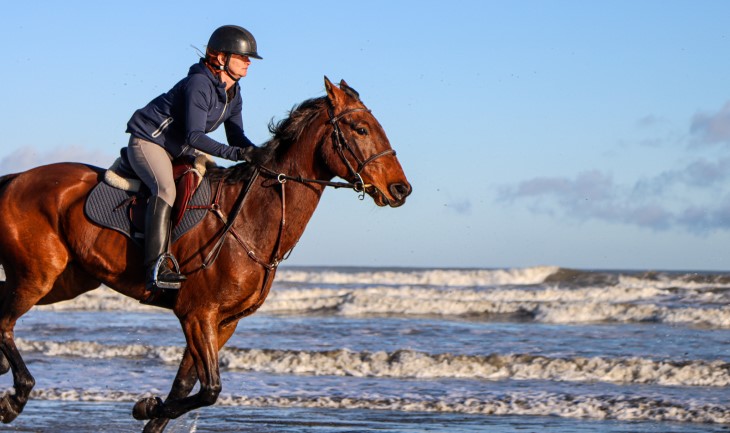
Getting back on her horse
Lenka says an ACC Concussion Clinic proved to be a turning point.
“It was fantastic,” she says. “They gave me the reassurance that what I was going through was normal. I just needed to stay patient and work to getting back to normal.”
The Concussion Clinic experts gave Lenka a range of exercises to help get her eyesight back.
She completed an exercise where she closed her eyes and would try to walk in a straight line.
“Three weeks after my concussion I couldn’t close my eyes and walk in a straight line without falling over. It was pretty scary to be honest.”
Aside from her balance being shot, Lenka was struggling in many other areas. Her eyes were very sensitive to light. The right-hand side of her face would get tired quickly.
She couldn’t spend long on computers. The screens would just tire me out so she would have to do her computer work in short bursts. He concentration would slip.
“It was exhausting.”
She says the Concussion Clinic set her up with long-term strategies. “It was a really good experience, and it made a huge difference to my life.”
Lenka was told to learn a language or learn a new skill like playing a musical instrument.
“I took up learning Italian and that helped me rebuild some of those pathways in my brain. “It took a long time to get back to normal, so I recommend preventing a concussion at all costs.”
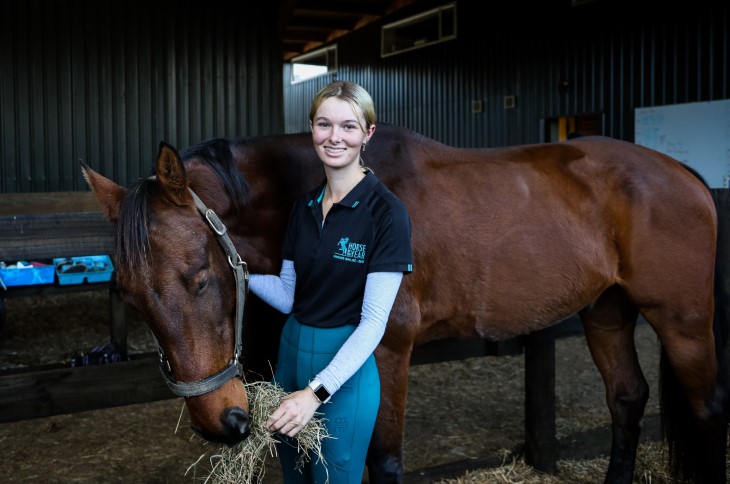
Lenka's daughter, Paris
Following the concussion protocols
Following a concussion, Lenka says you need to rely on those around you to make sensible decisions.
A week after her concussion, she was planning to drive her large truck (which transports up to seven horses) to an event with Paris.
“I just wasn’t thinking clearly,” she says. “I still felt that I could drive that truck no worries. It was the people around me who stopped me and said ‘No you are certainly not getting behind the wheel of a 30 tonne truck. Now I am horrified that I even suggested that.”
Nat Hardaker is an ACC Injury Prevention Partner. She says it’s important to follow the four Rs of Concussion Management.
The four R’s include: Recognise (the signs and symptoms of concussion), Remove (the person from play or work) Refer (to a medical doctor to confirm diagnosis and provide treatment/advice) and Recover (this includes a period of relative rest and a gradual return to general activities and then school/work and sport).
“If you or someone else has a suspected concussion, it’s important to be seen by a medical doctor as soon as possible," says Nat. “Then you can be assessed and receive the advice and treatment you need before returning to work, school or sport."
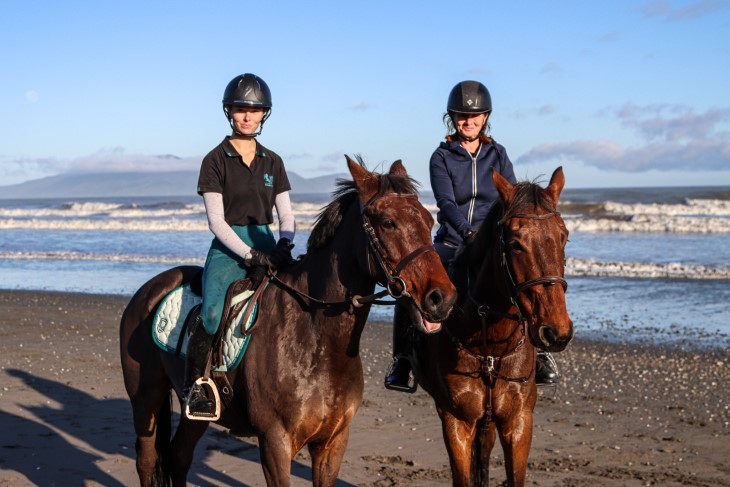
ACC encourages all sports to practice the Four Rs of Concussion Management
- Recognise (the signs and symptoms of concussion)
- Remove (the person from play)
- Refer (to a medical doctor to confirm diagnosis and provide treatment)
- Recover (before returning to school/work and sport)
For more information on:
- ESNZ’s guidelines on helmet tagging: Helmet Tagging | ESNZ (nzequestrian.org.nz)
- ESNZ’s Concussion Policy and Blue Card Process: Concussion | ESNZ (nzequestrian.org.nz)




